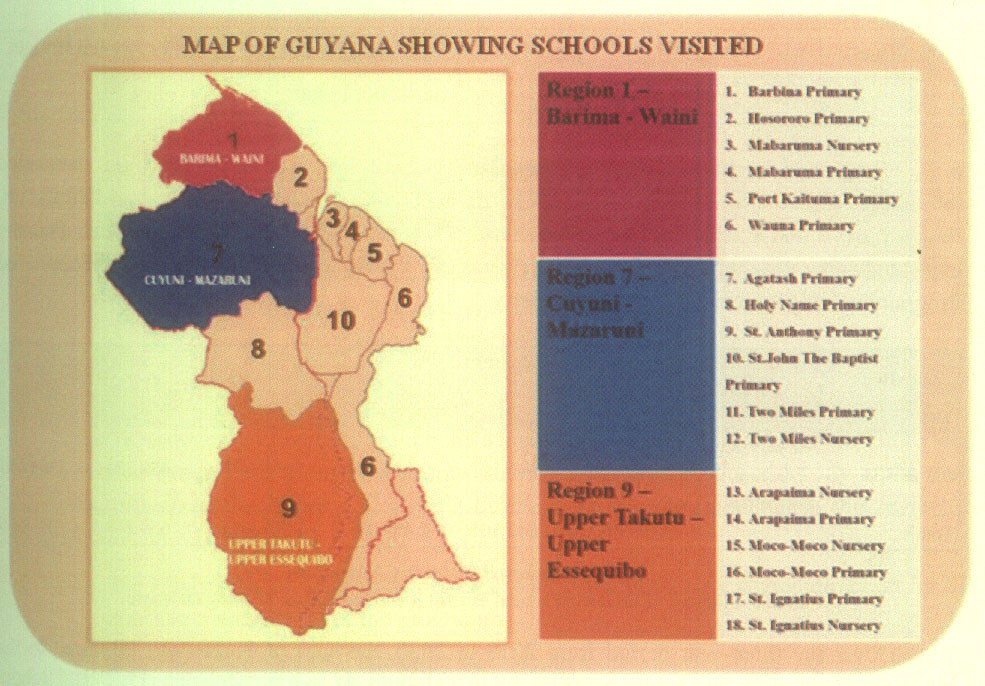The Auditor General’s Report covering the period January 1, 2018, to June 30, 2022 says that the Ministry of Education (MoE) “did not” effectively manage the Hinterland School Feeding programme rolled out in eighteen schools.
In what was a significant finding, the report said that 32 out of 55 cooks verified in regions 1,7 and 9 did not have a food handler’s certificate as required by the Food Safety Act.
“During interviews, the cooks explained that to obtain their certificate or have it renewed, they have to undergo the required training, which was stalled due to the COVID-19 pandemic. As a consequence, the meals prepared in these schools are currently prepared by uncertified cooks which represents a breach of the Food Safety Act…”, the report said.
The Report highlighted that the school feeding programme was expanded by MoE to more schools in vulnerable areas, primarily in the riverain and coastal regions to ensure that it achieved its mandate to ensure nutritious meals are provided to each eligible student daily.
This effort, it was explained, led to an overall increase in the number of schools and student beneficiaries and as a result many students were not catered for due to poor planning as monies were allocated based on a recurring figure and not an actual enrollment. This meant that the Education Ministry failed to cater for over 700 children in eight schools.
According to the AG’s report, in 2018, a total of 205 schools, with over 24,000 students benefitted from the feeding programme followed by an additional 2,663 in 2019 (26,960) and 26,778 in March 2020. As such, over the three-year period, there was an overall increase of 10 per cent in the number of students who benefited.
It was discovered that although the MoE catered for an increase of 2.5 per cent from 2 per cent in enrollment yearly, a sample taken from the programmes database from regions One, Seven, and Nine, showed that the ministry used the same enrollment figure more than 50 per cent of the time to allocate funds to these schools.
The actual enrollment from the Regional Education Departments was not taken into account and as such “vast anomalies” were observed.
“We found that there were 52 instances where the enrollment figures used by the ministry were far more than the actual enrollment figures used by the Regional Departments,” the report said.
It also highlighted that there were 26 instances where the enrollment figures in the database were much less than the actual enrollment which led to the ministry not catering for almost 800 students at eight schools.
In response, MoE officials explained that it was the duty of the respective schools to inform the MoE of the changes in enrollment during that period. However, if this was not done, the ministry would continue to use the “unchanged” figures.
The Auditor General noted that if the MoE is allotting more monies to schools than the actual number of students enrolled this would lead to having excess monies at their disposal which in turn can result in unauthorised purchases.
The report said that if the ministry uses lower enrolment figures to allot monies to schools than the actual number of enrolled students, students will be deprived of healthy and nutritious meals.
It was recommended that the relevant MoE officials such as the Head of the Budget Agency, who are responsible for devising a budget, must ensure that the accurate enrollment data are sourced from the relevant departments or schools before allocating monies to avoid an over- or under-estimation of students.
In its defence, the MoE explained that the community-based school feeding programme had implemented a system to cross-reference the enrollment figures provided by the Central Planning Unit and Regional Education Department. It explained that the enrollment numbers are updated at least once per term, thereby providing a more accurate representation of the schools’ populations and as a result, monetary disbursement.
In its conclusion on the chapter on programme planning and direction, the audit office report said “The Ministry did not conduct a comprehensive needs assessment to determine the nutritional needs and status of students, therefore not identifying whether significant changes were to be made in the food and nutritional aspect of the Programme”.
The AG’s report cited the MoE for insufficient funds for the feeding programme’s expenditure. In addition there was spending on items not budgeted for or stipulated in the programme’s guidelines as monthly operational costs.
“We found that purchases were made for a generator, stove, printer with papers, tools, meals and snacks for committee members, followed by photocopying, repairs and maintenance of kitchen and appliances,” the report stated.
Late disbursement of school feeding funds
It is essential that funds allocated to schools are released promptly as it ensures the availability of healthy and nutritious meals to students during school hours, the report highlighted. It was observed that the stipulated time for the disbursement of funds was not defined in the programme’s operation guidelines.
However, according to MoE officials, the funds are distributed during the first and second week of each month. That being said, there was no written documentation provided to indicate whether this was a policy decision within the subject ministry.
The report further noted that the lack of policy as to when schools are to receive funds can result in these funds not being available on time to provide school meals to all students.
Therefore, it was recommended that efforts and attention be put toward ensuring that the feeding programme’s operation guidelines clearly define a stipulated timeframe when funds should meet schools to ensure they are disbursed on time to provide meals for students.
However, the ministry insisted that the operational guidelines have been changed and regularised as funds are requested and processed in the first and second weeks of the current month, for the following month and usually disbursed in the final week of the month before use, barring any unforeseen circumstances.
Wauna
The report included observations by the audit team of food preparation at various schools. Cooks at the Wauna Primary School said that they had to cook meals using coal pots. This, the cooks said, posed a great challenge on their feet.
“They further mentioned that the kitchen was equipped with a new gas stove and a gas bottle that was always empty and never in use. We requested the financial statements from the school feeding unit for the years 2018 to 2020 to determine whether any gas was purchased during that time, however, we were only presented with four months’ statements. It was explained by Ministry officials that the remaining statements could not be located. Based on our analysis, we found that the school purchased three bottles of 100 pounds and four bottles of 20 pounds gas. We also found during the same time the school purchased 123 bags of coal valued at $130,400. Therefore, the Programme would indeed purchase gas but they were not utilized by the cooks in the kitchen”, the report said.
The audit office report also said that local food items are not always used. The ministry’s response was that even though the preference was to buy local, there were issues. It is however working to improve access to locally produced goods and this requires significant work with small-holder farmers.
Leaking roofs
Observations by the auditors during the period September 2021 to October 2021 revealed that six schools had leaking roofs: Wauna Primary, Mabaruma Primary, Hosororo Primary, Two Miles Primary, St Anthony’s Primary and Agatash Primary.










